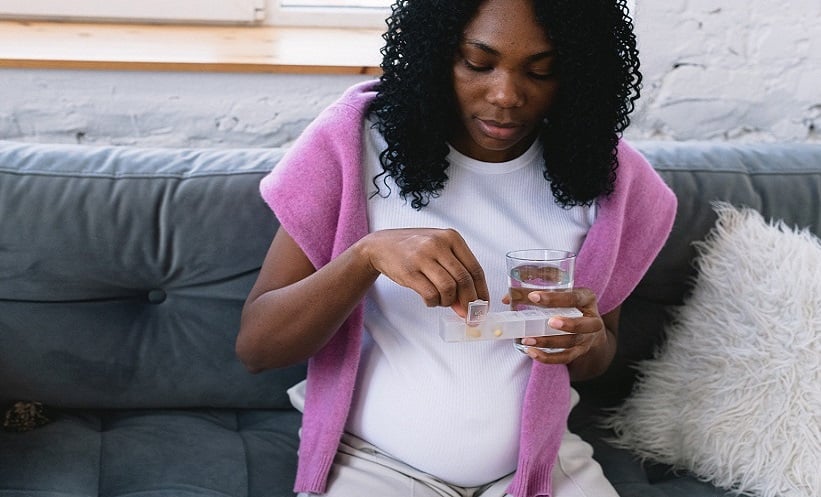EVIDENCE linking prenatal maternal vitamin D supplementation to the risk of infant eczema is inconsistent. Therefore, researchers at the University of Southampton’s Medical Research Council Lifecourse Epidemiology Centre, UK, sought to examine the influence of vitamin D supplements taken during pregnancy on the risk of atopic eczema in infants aged 12, 24, and 48 months.
MAVIDOS, a double-blind randomised placebo-controlled trial, was conducted within the UK, with over 700 pregnant females being allocated to either 1,000 IU of vitamin D (cholecalciferol) or a placebo taken daily from 14 weeks gestation to delivery. At ages 12 (n=635), 24 (n=610), or 48 (n=449) months, the prevalence of atopic eczema was recorded. The characteristics of the mothers and offspring in each group were similar, apart from differences in breastfeeding duration in the intervention group.
Results suggested that the offspring of mothers who received vitamin D supplementation had a lower odds ratio (OR) of atopic eczema at 12 months (OR: 0.55; 95% confidence interval [CI]: 0.32–0.97; p=0.04), 24 months (OR: 0.76; 95% CI: 0.47–1.23), and 48 months (OR: 0.75; 95% CI: 0.37–1.52); however, this was not statistically significant for the two latter timepoints. The study also reported that vitamin D supplements during pregnancy benefitted children’s bone density at 4 years old.
Thus, this is the first data to provide randomised controlled trial evidence of a protective effect of antenatal vitamin D supplementation in regard to infantile atopic eczema. Lead author Sarah El-Heis, Medical Research Council Lifecourse Epidemiology Centre, commented: “Our results show that babies of mothers who received supplements had a lower chance of having atopic eczema at 12 months, which supports recommendations for vitamin D supplements to be routine during pregnancy.” The investigators commented that more research is needed to determine why the protective effect was reduced at 24 and 48 months.







